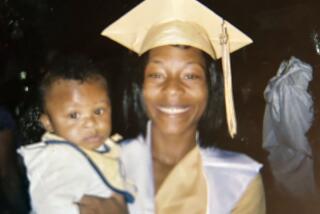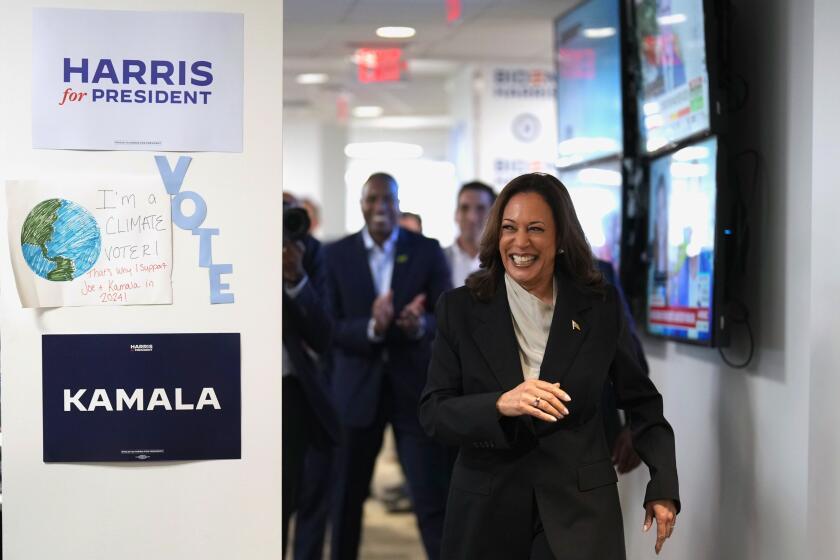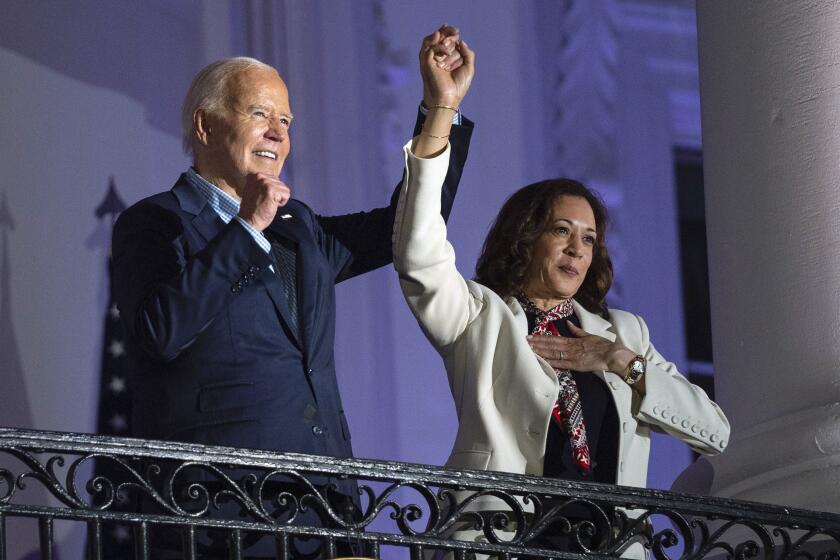American Economist Wins Nobel for Inflation Theory
A Columbia University economist was awarded the Nobel Memorial Prize in economics Monday for his paradigm-shifting work showing that reducing inflation wouldn’t necessarily lead to higher unemployment -- a key tenet of Federal Reserve policy since the 1980s.
Edmund S. Phelps, 73, who started his career at Santa Monica-based Rand Corp., was honored for his challenge to a post-World War II notion that low inflation and low unemployment couldn’t exist simultaneously. That notion was embodied in the so-called Phillips curve.
Phelps theorized in the 1960s that the drivers of inflation went beyond unemployment and wages. He faulted the strictly statistical Phillips curve for failing to take into consideration how the price and wage inflation expectations of people and companies affected their purchasing and employment decisions.
In his model, stimulative economic policies such as reducing interest rates and taxes boost employment in the short term but create a longer-term inflation problem.
Phelps’ theory gradually took hold. But not before monetary policymakers grappled in the early 1970s with an oil crisis, rising unemployment and slipping productivity. They responded by loosening monetary policy -- an effort that later was seen through the lens of Phelps’ theory as a contributor to the era’s troublesome inflation.
In the early 1980s, the Fed under then-Chairman Paul A. Volcker reversed course and sharply raised interest rates to reduce inflationary expectations. In the short run it produced a recession, but those policies -- also adopted by the next Fed chief, Alan Greenspan -- eventually helped lead to the low inflation and strong employment growth of the 1990s.
Today, Phelps’ ideas, particularly the value of holding down inflation, are a key part of the Fed’s monetary policy under Chairman Ben S. Bernanke. The central bank chief considers consumer and corporate expectations when Fed policymakers deliberate interest rates.
It was a groundbreaking theory, said John B. Taylor, a professor of economics at Stanford University who worked with Phelps at Columbia in the 1980s.
“Everybody would like to have low inflation,” Taylor said. “Everybody would like to have low unemployment. But there used to be -- before he wrote -- an idea that you couldn’t have both. He had the notion that there really wasn’t this trade-off.”
Phelps’ work “deepened our understanding of the relation between short-run and long-run effects of economy policy,” said the Royal Swedish Academy of Sciences, which hands out the Nobel prizes in economics, physics and chemistry.
That’s the kind of practical help that Phelps hoped to achieve, he said Monday.
“I’ve been interested in trying to put people in a more realistic way into our economic models,” he said. “In particular I’ve emphasized that people have to form expectations about the current state of the world and also expectations about the future, including the consequences for the future of their actions in the present.”
That isn’t easy, Phelps said, because people make decisions with incomplete information about the state of the world and how the economy works.
“It’s a great big mess, but I think the messiness was not sufficiently appreciated earlier,” said Phelps, who is known as a dapper dresser and does not own a home or car.
With Phelps’ win, which includes a $1.37-million purse, Americans have received all six of the 2006 Nobel awards handed out so far. The last two prizes, the literature award and the peace prize, are also to be announced this week.
In a short autobiography, Phelps traces his interest in economics to his birth in Chicago in 1933 at the “bottom of the Depression.” His father, who was in advertising, and his mother, a nutritionist, lost their jobs and relied on help from their parents until his father got work in 1939.
“The financial and economic news was a staple of dinnertime conversation,” he recalled. “My father had majored in economics and my mother in home economics -- also clues, perhaps” to his pursuit of the subject.
He earned a bachelor’s degree at Amherst College in Amherst, Mass., in 1955 and a doctorate from Yale University in 1959. He jetted west for a stint at Rand. But, he recalled later, the think tank, which was then focused on the nation’s future defense needs, lacked “broad academic stimulus.”
Despite the complaint, 1960 was a propitious year for Rand. That year, it hosted two other economists -- Harry M. Markowitz and William F. Sharpe -- who went on to be Nobel laureates, although only Sharpe’s tenure overlapped Phelps’.
Phelps went back to Yale in 1960, launching his career in teaching and economic research. He returned to the West Coast in 1969 for a stint at the Center for Advanced Study in Behavioral Science at Stanford University.
There, Phelps recalled, he met John Rawls, the philosopher known for his treatise “A Theory of Justice.” Phelps credited the encounter in part for his exploration of ideas of economic justice.
In more recent years, Phelps spent time in Europe studying upstart capitalist economies.
--
Times wire services were used in compiling this report.
*
(BEGIN TEXT OF INFOBOX)
Prizewinner
Name: Edmund S. Phelps
Age: 73
Position: Professor of political economy, Columbia University
Birthplace: Chicago
Publications: Author of 17 books, including 1997’s “Rewarding Work: How to Restore Participation and Self-Support to Free Enterprise.”
Education: Bachelor’s degree, Amherst College, 1955; doctorate in economics, Yale, 1959
Quote: “I wanted to reconcile microeconomics with macroeconomics. The solution was to throw away the textbook of microeconomics.”
--
Times research by Scott Wilson
More to Read
Sign up for Essential California
The most important California stories and recommendations in your inbox every morning.
You may occasionally receive promotional content from the Los Angeles Times.







